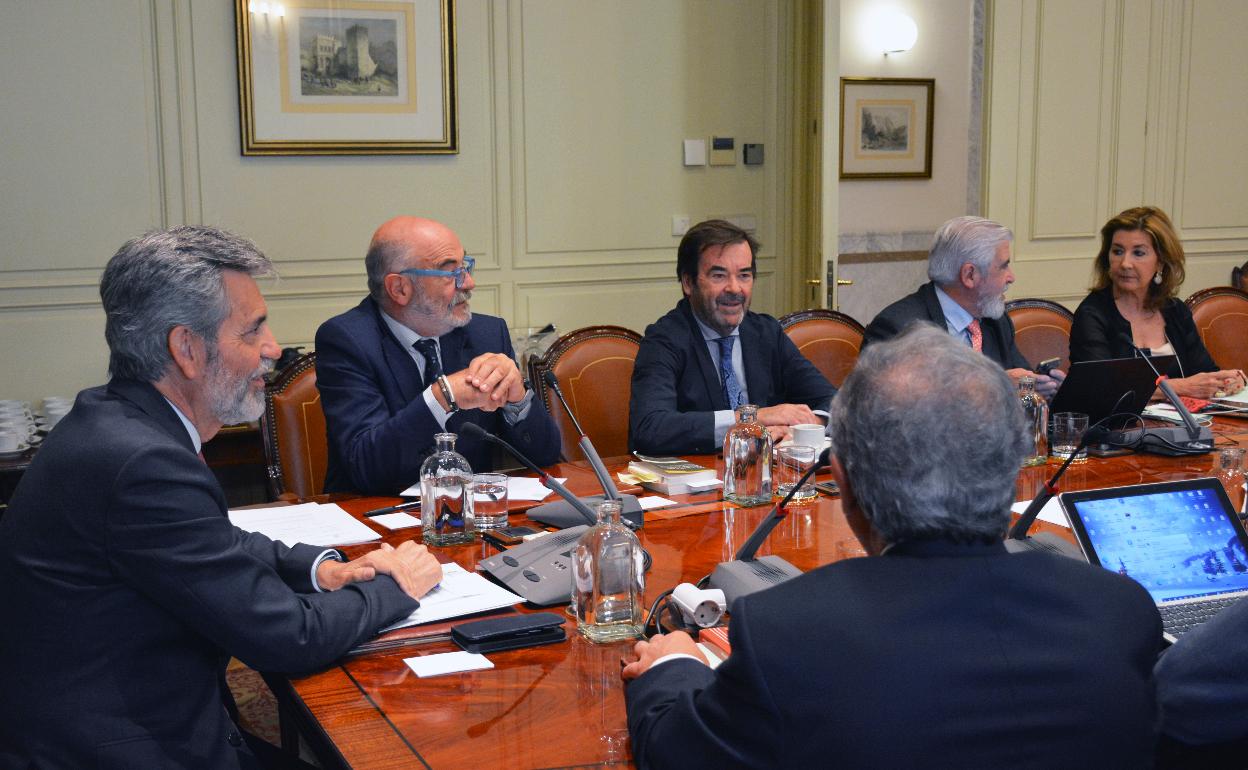Cause for concern
THE EURO ZONE ·
Neither the EU nor the UN are particularly impressed with the squabbling over the renewal of Spain's General Council of the JudiciarySpain's top politicians and judges have received careful scrutiny from the international community recently - but not for positive reasons. Both the EU and the UN are concerned that political battles are spilling over into the legal arena, smudging the line between judiciary and executive. Brussels blames squabbling politicians, whereas New York points to courts and law enforcement agencies with scant regard for citizens' rights.
In a letter sent to the General Council of the Judiciary (CGPJ) last week, the EU Commission expressed concern over the deadlock that is preventing selection of the body's new members. Every five years, candidates nominated for the CGPJ must receive the backing of three-fifths of both the upper and lower houses of Spain's parliament; but owing to conflict between the government and the opposition, the current panel has been acting on an interim basis since 2018, when it was first due for review.
If bickering politicians are the problem, though, one solution presents itself - take them out of the equation. The UK provides a good example of how this might be done: nominees for membership of the Supreme Court are presented to the Prime Minister (via the Lord Chancellor) by a specially convened committee. The Prime Minister then suggests the committee's recommendations to the King, who in turn sanctions the appointments. Because no parliamentary vote on the matter is required, the possibility of deadlock is avoided.
The UN, for its part, is concerned that political disputes are affecting the behaviour of Spanish courts and law enforcement agencies. At the end of August, the eighteen-member Human Rights Committee ruled that the political rights of four prominent Catalan separatists - including the region's former vice president, Oriol Junqueras - were violated in the aftermath of the illegal independence referendum held on October 1st 2017.
This is a welcome development in the intractable Catalonia saga, regardless of whether or not you support the secessionists. Not only were the punishments out of all proportion to the offences (Artur Mas only received a fine and ban from public office for organising a vote on Catalan independence in 2014); it has also never been explained on what legal basis several leading separatists were stripped of their duties immediately after 1-0 and incarcerated for the eighteen months that separated the referendum from the trial.
Pedro Sánchez said the prison sentences eventually handed to nine of these politicians and activists marked the "conclusion of an exemplary legal process" - although he ended up pardoning all of them last year. Neither the UN nor the EU, however, see much that's exemplary about the upper echelons of Spain's judiciary or its two main political parties. Instead, they're concerned about the damaging effects of politicised judges and a congress consumed with petty squabbles.

